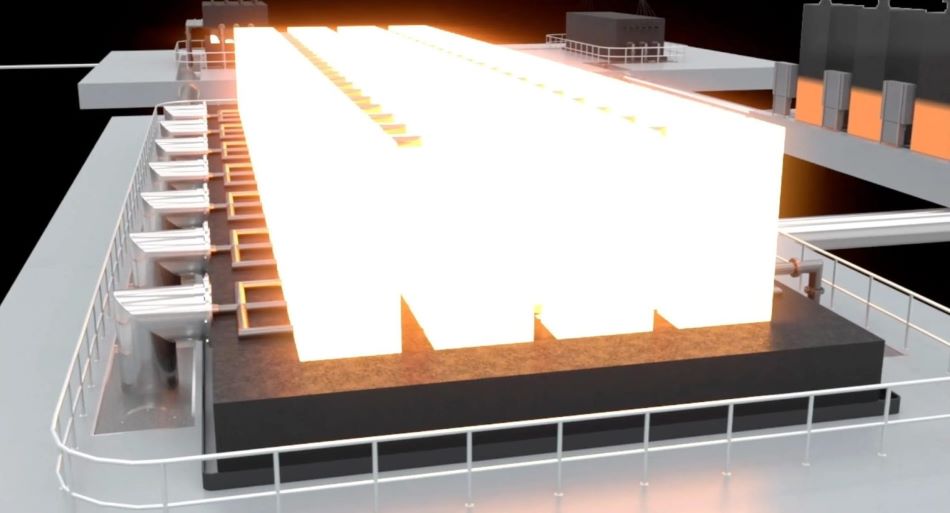Senate Hearing on American Nuclear Infrastructure Act of 2020
Senate Hearing on American Nuclear Infrastructure Act of 2020
Last week, the Senate Committee on Environment and Public Works held a hearing on the American Nuclear Infrastructure Act of 2020. Chairman John Barrasso opened the hearing touting the many fundamental uses of nuclear energy in meeting the nation’s energy, environmental, and national security goals. He commented on how America has led the world in developing new nuclear technologies and that the U.S. has been a leader in both nuclear safety and performance for the past 75 years. Chairman Barrasso commented that “we must ensure our [nuclear] leadership endures” and shared how the draft bill will make sure the U.S. maintains its position as the global nuclear energy leader.
According to the Chairman, the draft legislation will reestablish American international competitiveness and global leadership by empowering the Nuclear Regulatory Commission (NRC) to lead in international forums to develop regulations for advanced nuclear reactor designs. The bill also codifies the Trump administration’s proposal to provide the NRC authority to deny imports of Russian and Chinese nuclear fuel on national security grounds. Furthermore, it expands nuclear energy through advanced nuclear technologies by making the permitting process for advanced nuclear more predictable and efficient, modernizing outdated rules, and revitalizing nuclear supply chain infrastructure.
Ranking Member Tom Carper spoke about how nuclear power is a great source of clean energy for the United States and shared his support for the broader goal of what this legislation aims to achieve, but has reservations as to how the legislation is drafted. These reservations include changes to the permitting process, which Ranking Member Carper believes could result in unintended adverse consequences for public safety and health. He also takes issue with the proposed incentive program for the existing nuclear industry, especially considering the proposed cut of 27% to EPA’s budget.
After the conclusion of opening remarks, the following hearing panelist were able to share their testimony:
Mr. Goranson spoke specifically of uranium production and how state-owned uranium enterprises, specifically Russia, is driving down demand for U.S. uranium. The U.S. is now only mining limited amounts of uranium not because we lack the ability to mine the product, but because state-controlled market forces are unfairly driving down the cost of imported uranium, making it much more difficult for U.S. uranium production to survive. The U.S. is not competing in the free-market, rather within a state-controlled market controlled by foreign adversaries.
Mr. Cohen, self-identified environmentalist and climate change fighter, joined remotely. He supports rapid deployment of renewable energy and believes nuclear has a role to play. He shares that there is “a lot to like” in the draft bill, including incentives for continued operation of the existing fleet, getting the NRC to think ahead on novel applications, and the uses of advanced manufacturing. He does, however, like Ranking Member Carper, have concern with the permit streamlining provisions.
For more information, read Chairman Barrasso’s press release on the draft legislation and view the webcast of the hearing in its entirety.
According to the Chairman, the draft legislation will reestablish American international competitiveness and global leadership by empowering the Nuclear Regulatory Commission (NRC) to lead in international forums to develop regulations for advanced nuclear reactor designs. The bill also codifies the Trump administration’s proposal to provide the NRC authority to deny imports of Russian and Chinese nuclear fuel on national security grounds. Furthermore, it expands nuclear energy through advanced nuclear technologies by making the permitting process for advanced nuclear more predictable and efficient, modernizing outdated rules, and revitalizing nuclear supply chain infrastructure.
Ranking Member Tom Carper spoke about how nuclear power is a great source of clean energy for the United States and shared his support for the broader goal of what this legislation aims to achieve, but has reservations as to how the legislation is drafted. These reservations include changes to the permitting process, which Ranking Member Carper believes could result in unintended adverse consequences for public safety and health. He also takes issue with the proposed incentive program for the existing nuclear industry, especially considering the proposed cut of 27% to EPA’s budget.
After the conclusion of opening remarks, the following hearing panelist were able to share their testimony:
- Amy Roma, Founding Member, Nuclear Energy and National Security Coalition, Atlantic Council; Partner, Hogan Lovells
- W. Paul Goranson, President, Uranium Producers of America; Chief Operating Officer, Energy Fuels Inc.
- Armond Cohen, Executive Director, Clean Air Task Force
Mr. Goranson spoke specifically of uranium production and how state-owned uranium enterprises, specifically Russia, is driving down demand for U.S. uranium. The U.S. is now only mining limited amounts of uranium not because we lack the ability to mine the product, but because state-controlled market forces are unfairly driving down the cost of imported uranium, making it much more difficult for U.S. uranium production to survive. The U.S. is not competing in the free-market, rather within a state-controlled market controlled by foreign adversaries.
Mr. Cohen, self-identified environmentalist and climate change fighter, joined remotely. He supports rapid deployment of renewable energy and believes nuclear has a role to play. He shares that there is “a lot to like” in the draft bill, including incentives for continued operation of the existing fleet, getting the NRC to think ahead on novel applications, and the uses of advanced manufacturing. He does, however, like Ranking Member Carper, have concern with the permit streamlining provisions.
For more information, read Chairman Barrasso’s press release on the draft legislation and view the webcast of the hearing in its entirety.



